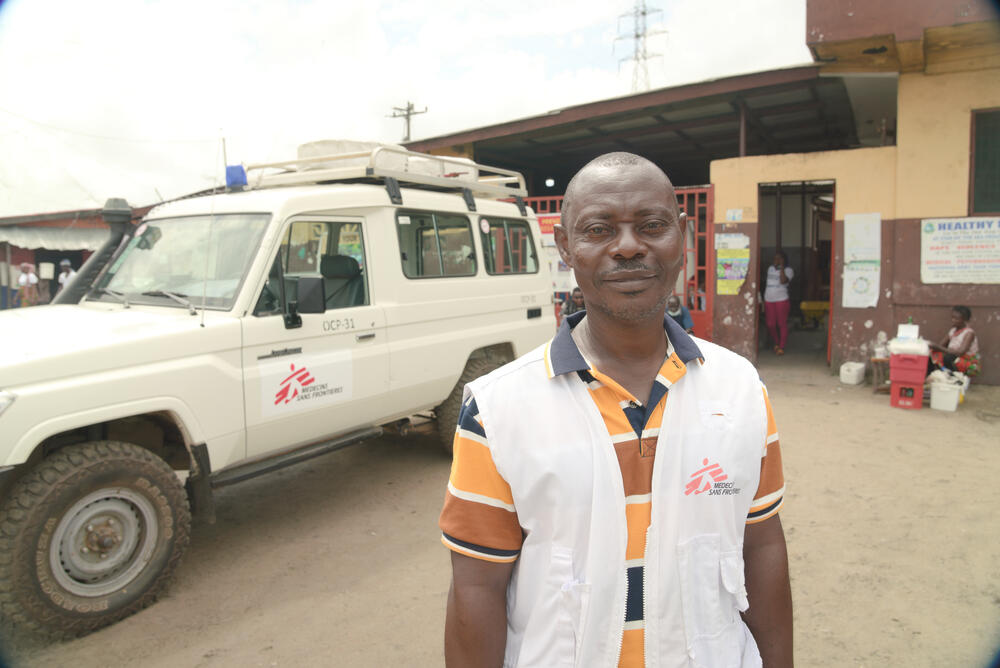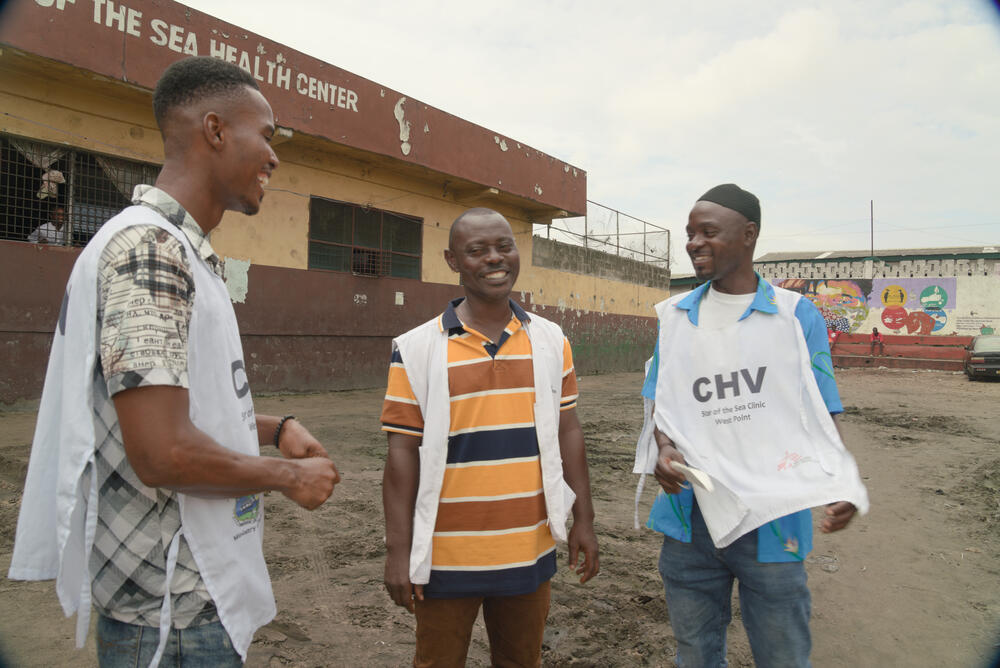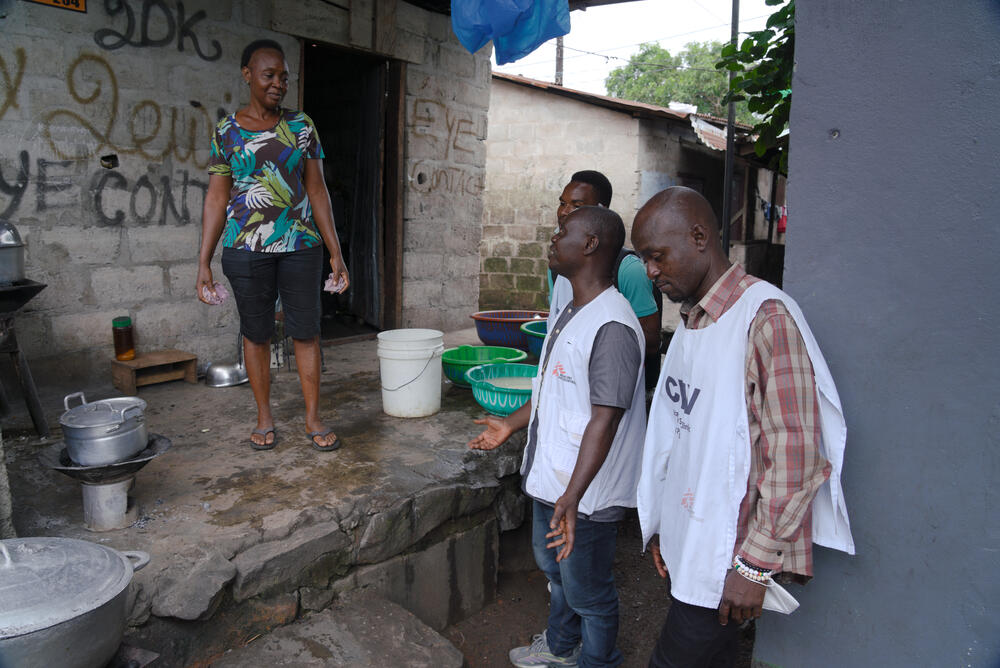‘People with epilepsy can reach their full potential’
S. Wonka Reeder Senior
13 January 2023
In a society where epilepsy is feared in many ways, Médecins Sans Frontières psychosocial worker S Wonka Reeder Senior is a passionate advocate for a holistic treatment approach that helps young people stay in school in Monrovia, Liberia.
S Wonka Reeder Senior started working with the epilepsy programme in Montserrado County, home of Liberia’s capital, in 2020. Based in the Star of the Sea Health Centre, he is part of a team providing clinical treatment and psychosocial support for people living with epilepsy in the crowded West Point township, one of several sites across the county.
“We take a holistic approach, in that the patient’s wellbeing is our goal. My role is to do counselling, to do psychoeducation and to do home-based visitation with patients—to get them on their feet, to get them motivated to take their medication, and to get them to feel a sense of belonging,” says Reeder. “Sickness can come to anyone, at any time. I explain that epilepsy is a global thing, affecting people in Germany and people in Australia, people in America, all over the world. So we orientate them over the treatment, and that will help them to adhere.”
Despite being a common neurological disease worldwide, epilepsy can be especially confronting in a society that has little knowledge of it, and limited access to appropriate care. Myths about epilepsy are not uncommon in Liberia, including that it is contagious and “demonic”, says Reeder.
”But everyone is a social being. You need someone to coexist. If people ostracise you, it doesn't augur well. If you have epilepsy and you are being bullied, you develop that [negative] mindset that you are useless.” From a treatment point of view, “if you don't work on the psychosocial problems, and they are taking medication, it doesn't work.”
Reeder tries to establish as full a picture as possible with each patient. Questions about their family history, how they relate to people and how people relate to them, reveal intimate details about the dehumanising experiences people face each day. “I’ve seen people being ostracised by their immediate family... I’ve learned that, even in the homes, family members don't share cups with them, or spoons, and they don't eat together.”
Parents of children with epilepsy need their own support, says Reeder. “Looking at the child, you had a child who at a certain age should be doing certain things. Their development is so slow because of epilepsy or another mental illness. It makes the parent or the caregiver themself depressed.”
Reeder also does awareness-raising at community level, alongside the invaluable team of community health volunteers. “We go to the churches to do awareness-raising there; we tell traditional healers that if they have a patient with epilepsy, ‘Don't restrain them and don't put them on a chain, don't beat them. Send them to us, we can help you.’ ”
In schools attended by children in the programme, Reeder and colleagues run education sessions with the teachers and students, to build acceptance and provide an appropriate first-line response.
“So we have encouraged a lot of those that dropped out of school, back into school. People who were neglected and were not in school are now making good grades,” adds Reeder.
“We don't find solutions, as social workers, we don't solve your problem. We work with you to solve your problem.”
S. Wonka Reeder Senior, Psychological Worker
All of these activities contribute to re-establishing the sense of self-worth, and dignity, in someone living with epilepsy. “They shouldn't be afraid to go around people. Especially when they are adhering to their medication, they can go and do what they want to do. But they still need to be mindful of going near fire, going near water, and climbing higher places.”
Counselling is a passion for Reeder. “What makes me happy about this job is when my clients see me as a motivator, when they see me as someone who set them back [on track], who assisted them. Because we don't find solutions, as social workers, we don't solve your problem. We work with you to solve your problem.
“With the psychoeducation, people get to realise that they are humans, and many of our patients feel belonging now. What is more encouraging is that these patients themselves go out and encourage other people to come in. So Médecins Sans Frontières is doing well for people, especially in our setting where people don't have the financial capacity to seek treatment.
“People with epilepsy can reach their full potential. They can do everything that we do, and they should fit into society and be a part of us.”




